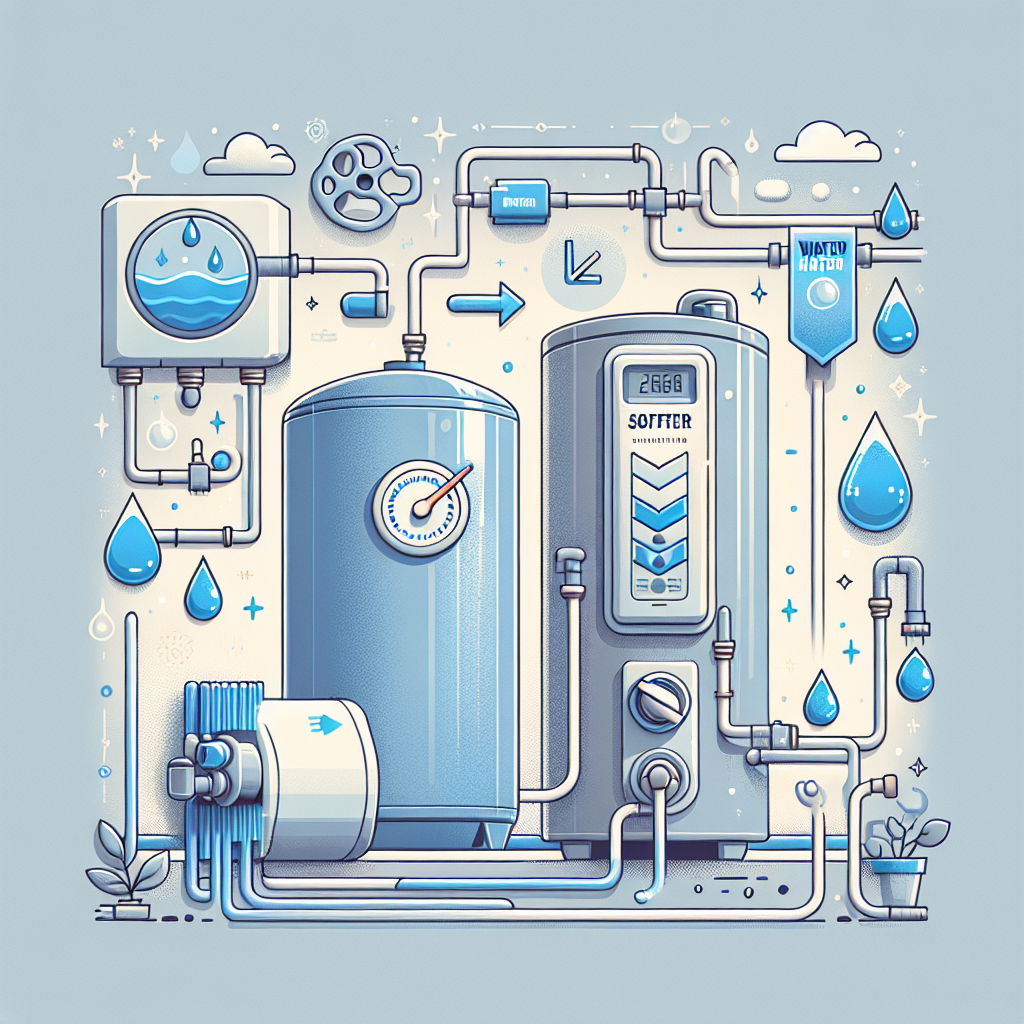When you turn on the tap at home, you expect clean, clear water for cooking, cleaning, and bathing. But what if that water has a secret: minerals that can wreak havoc on your plumbing, appliances, and even your skin? In this article, we’ll explore the need for a water softener and how hard water can impact your water heater and overall home comfort.
What Is Hard Water?
Before diving into whether you need a water softener, it’s essential to understand what hard water is. Hard water contains high levels of minerals, primarily calcium and magnesium, which are picked up as water travels through soil and rock. While hard water isn’t harmful to your health, it can lead to various problems in your home that could affect your lifestyle and expenses.
Signs You Might Have Hard Water
Identifying hard water in your home can be straightforward if you know what to look for:
- White Residue on Fixtures: If you notice a chalky buildup on your faucets or showerheads, it’s a telltale sign of hard water.
- Dry Skin and Hair: Hard water can lead to skin irritation and lifeless hair, making washing feel like a never-ending battle.
- Soap Scum: If your soap doesn’t lather well or leaves a greasy film, hard water could be the culprit.
- Frequent Plumbing Repairs: If you find yourself calling the plumber often, hard water might be contributing to clogged pipes and other plumbing problems.
The Impact of Hard Water on Your Water Heater
One of the most affected appliances in your home due to hard water is your water heater. Here’s how hard water can cause issues:
1. Sediment Buildup
When hard water heats up, the minerals can settle at the bottom of your water heater. This buildup can reduce efficiency and lead to costly repairs. Over time, sediment can cook the heating elements faster than normal, risking their functionality.
2. Decreased Energy Efficiency
With sediment buildup, your water heater requires more energy to heat water effectively. This can lead to higher utility bills. In fact, studies suggest that hard water can reduce a water heater’s efficiency by up to 30%.
3. Premature Aging
Hard water can shorten the lifespan of your water heater. Many manufacturers recommend regular maintenance, but if you have hard water, a water softener could significantly reduce the wear and tear on your appliance and extend its life.
Benefits of Installing a Water Softener
Now that you understand the drawbacks of hard water on your water heater, let’s delve into the potential benefits of installing a water softener in your home.
1. Improved Water Quality
A water softener effectively removes the calcium and magnesium ions from the water supply. This results in smoother, softer water, which often feels better on your skin and hair. You’ll find that your soap lathers more effectively, and your laundry comes out cleaner and softer.
2. Enhanced Appliance Efficiency
With soft water, your water heater no longer has to work as hard to produce heated water, leading to lower energy bills and improved efficiency. The less strain on your water heater means a longer lifespan and fewer repairs or replacements.
3. Cleaner Fixtures and Fewer Repairs
Soft water helps prevent mineral buildup, leading to cleaner fixtures, efficient shampooing, and fewer plumbing repairs over time. You can enjoy lower maintenance costs and keep your home looking its best.
Is a Water Softener Worth the Investment?
The decision to purchase a water softener often comes down to your specific water quality and home needs. If you notice signs of hard water, it might be worth the investment in a water softener. The upfront cost can be offset by savings on energy bills, extended appliance lifespan, and reduced maintenance costs.
However, if you suspect your water is only mildly hard, consider testing it first. Home test kits are widely available and can give you a clearer picture of your water’s mineral content.
Conclusion: Evaluating Your Options
Ultimately, deciding whether you need a water softener is a personal one. While it offers numerous benefits, especially regarding your water heater’s longevity and efficiency, it requires careful consideration of your home’s unique situation.
If you find your water quality is less than satisfactory, a water softener might be the solution you’ve been searching for. It’s not merely about comfort; it’s also about investing in the longevity of your appliances and reducing your environmental footprint.
Ready to Make a Decision?
If you’re convinced that a water softener is right for your home, consult local experts in water treatment. They can guide you on the best products and installation processes. Remember, clean, soft water is not only a luxury; it’s a pathway to a happier, healthier home.


